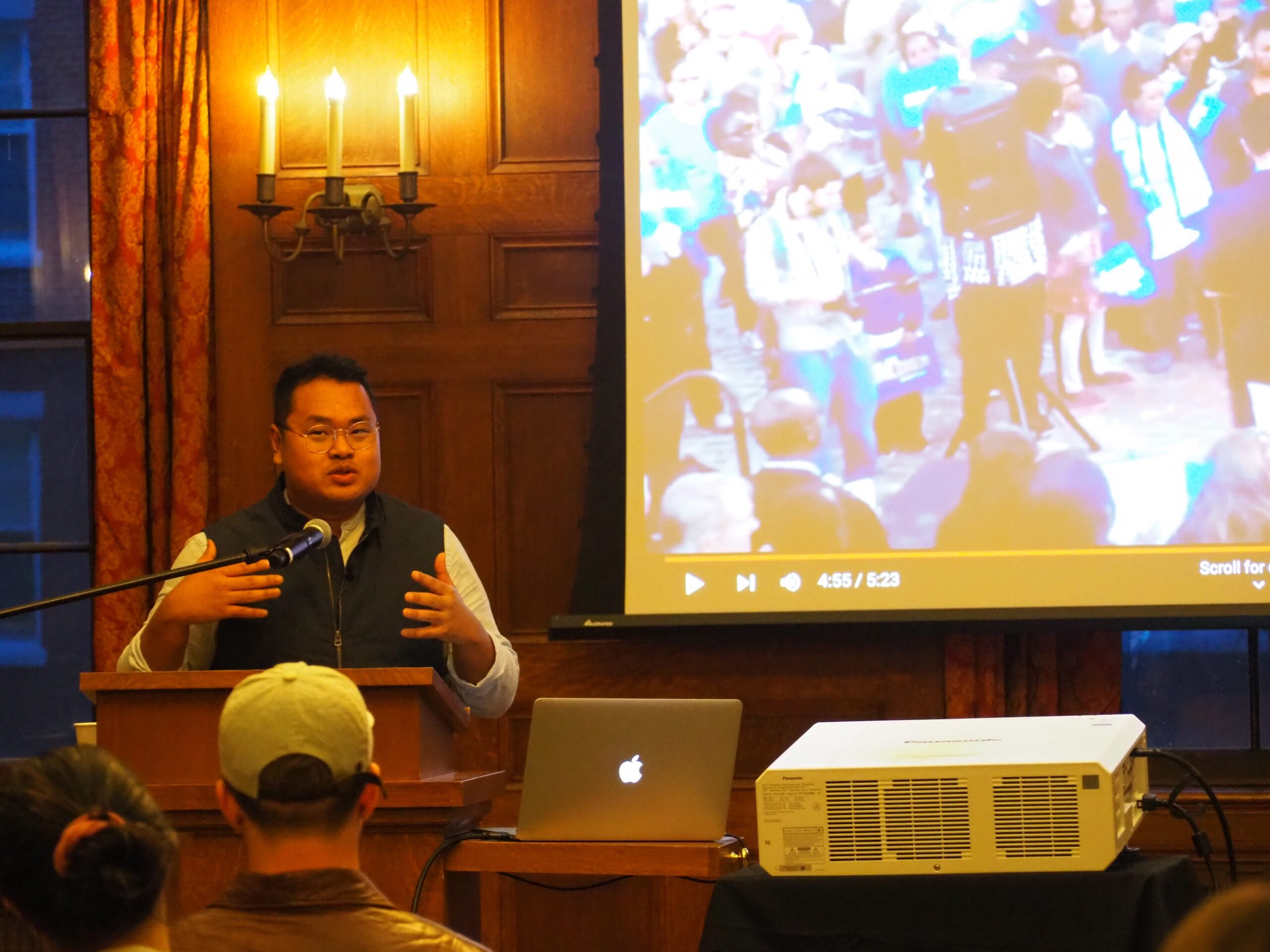Moon in full: Marpheen Chann’s coming-of-age story
April 7, 2023
 Chinwe Bruns
Chinwe BrunsWhen Marpheen Chann tells people that his first book is a memoir, he is usually met with confusion.
“I kind of get this quizzical look,” Chann said. “‘You wrote a memoir at age 30, 31?’ It’s like, ‘Yeah, I’ve experienced a lot.’”
Chann is a gay, first-generation Cambodian adoptee of a white, Christian, working-class Maine family. His new book, “Moon in Full: A Modern-day Coming of Age Story,” explores his identity.
Chann was the first in his biological and adoptive families to attend college, earning a bachelor’s degree in political science from the University of Southern Maine and a law degree from the University of Maine School of Law. He shared an excerpt from his book about his experience as a gay man on a college campus after growing up in a community that did not support LGBTQ+ people.
His experience reconciling his childhood beliefs with his growing understanding of his own identity during college resonated with audience member Lily Janas ’26.
“I think maturing is having a realization of your own identity, and I liked how he appreciated the suffering and pain of that process and about how college is really a time to branch out and discover yourself, whether that is through successes or failures,” Janas said.
This experience in college is one of the many instances in which Chann questions the traditional view of what it means to be a Mainer. He shared the challenges of not fitting in with Maine’s largely white population.
“When I’m going up north, is it, ‘okay, should I wear a nice white dress shirt? And this nice jacket? Or should I wear a flannel?’ Some things as simple as that run through my head because I don’t want to stick out like a sore thumb because then I might become a target,” Chann said.
Beyond facing the difficulties of interacting with strangers, Chann shared the pain of grappling with his identity when it harms close relationships, recalling his adoptive parents’ struggle to come to terms with Chann being gay because of their religious beliefs. Chann, however, also shared that he has assumptions of his own that he has worked to understand and uproot.
“It’s still important [that] coming out still happens because of the assumptions of what a family looks like. I still have really deeply embedded Christian beliefs. When I hear about polygamy, I kind of tilt my head … and I’m okay with polygamy, but the concept took me a while to learn,” Chann said.
Despite the difficulties in confronting the assumptions of others as well as processing his own, Chann preaches empathy in understanding different points of views. Assistant Professor of Sociology Theo Greene—who moderated a conversation with Chann at the event—found this idea to be potent.
“There’s such a powerful story here, not only in terms of the themes he raised about empathy but also forgiveness. Not only of the people sometimes that are in our lives that can disappoint us over the course of our lives but also forgiveness of ourselves in terms of understanding that the way in which we come into who we are is not an easy path and easy process,” Greene said.
Chann finished by touching on the romanticized media portrayal of coming out in which the character is immediately met with love and acceptance. Chann maintained that this trope is far from reality for many people, and he hopes to affirm the pain and stress that many experience when questioning their identity.
Chann’s advice? “Don’t assume coming out looks exactly like it does for other people you might know or people in movies. Give yourself time. Give yourself a lot of grace. Know that there’s a lot to learn through this process,” he said.
Attendee Milo Young-Perez ’23 was grateful that someone like Chann could come to campus and share experiences that so many college students resonate with as they explore identity, some for the first time.
“I’m just really glad that we’re offering space to highlight perspectives that aren’t super talked about here, and I thought he had a really insightful point of view on his life experiences,” Young-Perez said.

Comments
Before submitting a comment, please review our comment policy. Some key points from the policy: